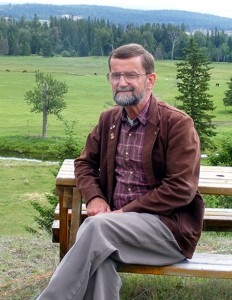Home »

Earthquakes, fracking and our lust for oil
And where do you think most earthquakes occur in the United States? Well, if you guessed California you would be wrong. And it’s not Oregon, Washington or anywhere else on the San Andreas Fault.
How about Oklahoma, the cornbelt state on the sun baked plains of the mid-west “where the wind comes sweeping down the plain,” according to the famous Broadway play.
Oklahoma? Earthquakes! How’s that, you say? According to a study released this week in the prestigious journal ‘Science,’ seismic data from 2008 to 2013 reveals that earthquakes above magnitude three in the Great Plains state have jumped from one a year to one-a-day, far eclipsing even earthquake prone California.
“It’s been a real puzzle how low seismic activity level can suddenly explode to make (Oklahoma) more active than California,” says Katie Keranen, a geophysics professor at Cornell University and lead researcher of the study reported in USA Today. But the study also goes on to identify the probable cause of all the quakes shaking the ground in what was previously one of the most seismically quiet states in all of America.
Fracking!
Yes, the universal thirst for oil, which knows no bounds in our petro-chemical soaked world, is being blamed for regularly shaking the very ground under the feet of the nearly four million people who live in the state. That’s “a whole lot of shaking going on,” as Gerry Lee Lewis sang in his famous ‘50s song, when things were a lot quieter in Oklahoma.
Fracking involves vast quantities of water being pumped deep into the earth, both at the beginning of the controversial process when the chemical-laced water is pumped in at enormous pressure and at the end when the highly-polluted water is pumped back in to get rid of it. Out of sight, out of mind so to speak. But it’s hard to keep the process “out of mind” when the surface of the earth starts moving under your feet as many Oklahomans are discovering in recent years. And this has ignited a wave of consternation in a state which makes up part of Tornado Alley where the air also moves very fast.
Pumping water into the earth does two things, says Columbia University seismologist and study co-author Geoff Abers. It adds weight to the ground so that the crust pushes downward, and it increases fluid pressure in the cracks along the faults, which makes it easier for the faults to slip and hence more earthquakes. “The big thing for our study is these really high-volume injection operations seem to have the greatest risk of earthquakes,” Abers says.
So there it is and you thought the only thing to worry about in terms of oil production was the Enbridge Northern Gateway Pipeline, which Ottawa recently approved in northern B.C. subject to 209 conditions. The fact of the matter is even Cranbrook is not as far away from the continental oil plays as we would like to think.
With Premier Christy Clark staking the province’s future on a LNG boom there are at least half-a-dozen new gas and oil lines being contemplated for the province and fracking exploration has occurred as near to Cranbrook as the Elk Valley.
In the province as a whole, 7,300 wells have been fractured since 2005, the majority in the giant shale gas fields of northeastern B.C. The Canadian Society for Unconventional Resources estimates that B.C.’s three largest shale basins hold up to 1,000 trillion cubic feet of natural gas.
Fracking also releases eight times as much methane to the atmosphere as conventional oil drilling even though methane causes much more greenhouse warming than carbon dioxide.
 Now it’s also true that earthquakes measuring 3.0 on the Richter Scale cause little damage; although a damaging 5.6 quake hit Prague, Oklahoma in 2011 causing considerable damage. But does it take earthquakes to cause us to consider whether fracking is a safe method to satiate our oil thirst? One would think not. But when has thinking ever got in the way of our lust for oil?
Now it’s also true that earthquakes measuring 3.0 on the Richter Scale cause little damage; although a damaging 5.6 quake hit Prague, Oklahoma in 2011 causing considerable damage. But does it take earthquakes to cause us to consider whether fracking is a safe method to satiate our oil thirst? One would think not. But when has thinking ever got in the way of our lust for oil?
– Gerry Warner is a retired journalist and Cranbrook City Councillor. His opinions are his own, but he hopes to be driving an electric vehicle soon.








